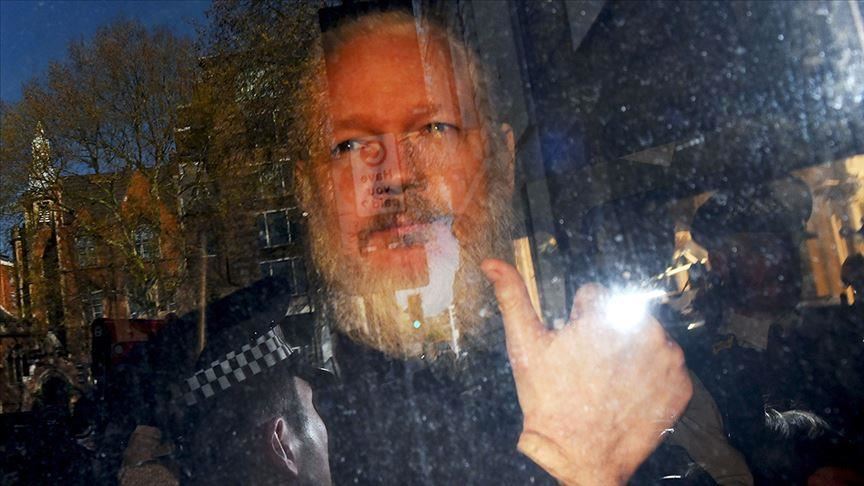
WikiLeaks founder Julian Assange’s extradition case started in a London court on Monday.
On the first day of the trial at the Woolwich Court near Belmarsh Prison, where he was detained, Assange spoke only to confirm his name and date of birth.
At the hearing watched by Assange’s father, John Shipton, and some of his supporters, the U.S. defense was first heard.
Assange “put lives at risk” by disseminating classified materials through WikiLeaks, said James Lewis, a lawyer representing the U.S. on the first day of extradition hearings.
Lewis also said that journalism cannot be an excuse for breaking the law or criminal activities.
Outside the courthouse, there were also about a hundred protesters supporting Assange.
The first part of the extradition hearings are set to last through Friday, followed by a second phase starting in May. Experts say Assange’s extradition case could take up to two years.
If the U.K. court accepts the extradition request from the U.S., where he is accused of espionage, Assange will be able to appeal the case to a higher court and from there the European Court of Human Rights.
If he is extradited to the U.S., Assange will face 18 counts of hacking U.S. government computers and violating espionage law a possible sentence of years in prison.
Last April he was dragged out of Ecuador’s Embassy in London, where he had taken refuge for more than seven years.
British police said he was arrested for skipping his bail in 2012 and on behalf of the U.S. due to the extradition warrant.
Later, he was found guilty of breaking his bail terms in 2012 after failing to surrender to security services by the Westminster Magistrates’ Court and given a 50-week prison term.
Assange was due for a release last September but was held for longer on fears he would flee.
US crimes exposed by WikiLeaks
Some of WikiLeaks’ biggest revelations came through its 2010 Iraq file leak, which included U.S. Army documents on undisclosed civilian killings and the torture of prisoners.
This file featured images of the killing of 15 people, including two Reuters journalists, as a result of gunfire from a U.S. military Apache helicopter.
In the video taken by the helicopter camera, soldiers shouted encouragement, laughing and using abusive expressions.
The U.S. army did not punish the soldiers, stating that there were “rebels” in the area where the soldiers were about to be ambushed.
“At the time, we were unable to distinguish whether they [Reuters employees] were carrying cameras or guns,” said the U.S.
In 2010, WikiLeaks published more than 90,000 confidential documents and reports on the war in Afghanistan.
U.S. soldiers fired at a bus and killed 15 people, said the leaks. And Polish soldiers raided a wedding and killed five people including a pregnant woman and her child, it added.
The files included a case in which U.S. forces allegedly killed some 300 civilians in a missile attack but claimed to have killed 150 Taliban members, and the establishment of a secret special unit to kill the Taliban leaders without trial.
In addition, it was also revealed that employees of firms that work for the U.S. Defense Department sexually abused boys.
Guantanamo documents
In 2007 WikiLeaks published the “Standard Operating Procedures for Camp Delta,” the U.S. Army manual for soldiers dealing with prisoners at Camp Delta.
Human rights groups were shocked to learn that prisoners could be denied access to the Red Cross for up to four weeks, according to the official guidelines.
It also said inmates could earn “special rewards” for good behavior and cooperation such as a roll of toilet paper.


